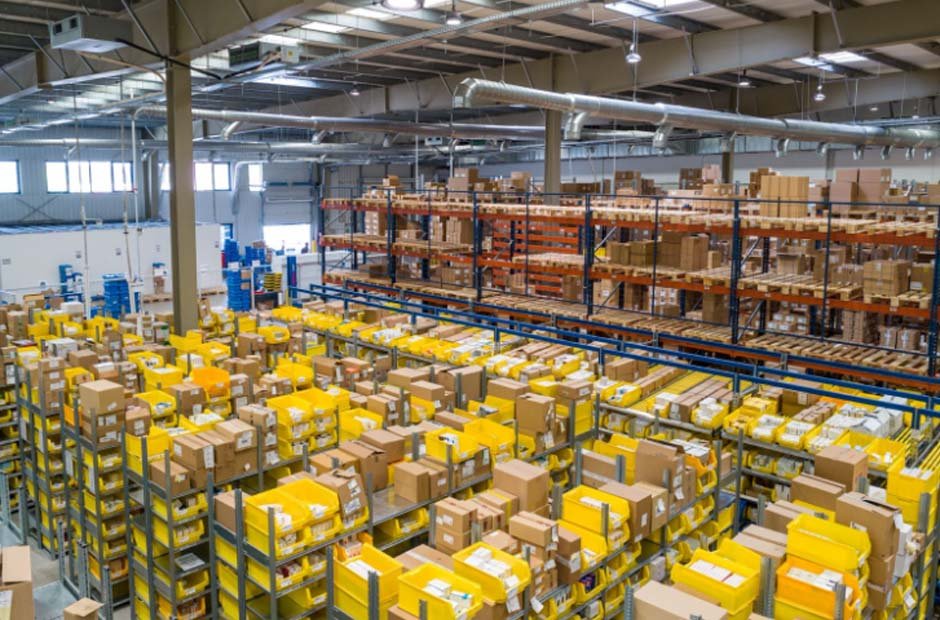Improving transportation optimization refers to enhancing the logistic efficiency and effectiveness of a company’s supply chain and distribution processes. After all, in today’s contemporary society, rapid deliveries within one or two days have become the norm. Consequently, businesses must continually devise innovative methods to ensure that final-mile delivery meets customer satisfaction.
Can you recall how it used to be before logistics freight services? For consumers, the primary factors by which they assessed their product experiences were quality and pricing. However, in the age of the internet and online shopping, convenience, accessibility to a wide range of products, online delivery, as well as the speed and quality of delivery have been added to the mix. Take Amazon, for instance, which offers its customers same-day delivery, winning both the affection and spending of its clientele. Competing with such an industry behemoth is no easy task, but the field of logistics has made strides forward, presenting numerous solutions.
Why is optimization in logistics necessary?
There are various approaches to enhancing the customer experience in final-mile delivery. One of these methods involves the optimization of routes. This aids in delivering products to consumers in a swifter and more cost-effective manner while reducing shipping expenses. We will now elucidate the means through which these outcomes can be achieved. So, how to optimize supply chain?
- Logistics route optimization
Outdated and insufficiently effective manual processes and tools have been supplanted by modern delivery optimization tools for long-term route planning. Nowadays, route planners can swiftly identify the most efficient and quickest routes. The primary objective of route optimization should consider factors that influence delivery times, enabling precise delivery time predictions for customers. Additionally, optimizing routes based on distance allows your company to maximize deliveries using existing resources.
- Structured task management for process logistics
Similar to route planning, the manual assignment of drivers and task management should be automated to ensure the efficient allocation of drivers, vehicles, and equipment.
Real-time tracking and transparency The implementation of real-time tracking enables fleet managers and dispatchers to promptly monitor driver locations and delivery statuses. This affords flexibility in planning and responsiveness, active involvement in delivery processes, and also empowers customers to track their order locations at any given time. In today’s consumer-centric environment, this capability is of paramount importance as customers desire real-time insights into the status and whereabouts of their parcels. Gathering data from drivers makes issues that impede swift and efficient deliveries readily apparent, thereby enabling future rectification.
- Electronic delivery confirmation
A solution that equips drivers with the ability to receive electronic delivery confirmations, storable within the system, greatly enhances post-delivery customer service. These confirmations simplify the resolution of any issues that may arise during transport and facilitate communication with clients. This, in turn, prevents unnecessary complications, disputes, refunds, and even legal actions.
- Management of reporting and data analysis
Fleet dispatchers must objectively track key performance indicators, a task made easier through software that generates and stores reports and analytics. This empowers the identification of areas for improving fleet performance and facilitates informed decision-making based on concrete evidence.
We cordially invite you to explore the functionalities of our state-of-the-art logistics optimization software, meticulously crafted to usher in a new era of excellence in final-mile delivery. This cutting-edge solution empowers transportation entities, individual operators, and manufacturers with instantaneous delivery scheduling and adaptable modifications. With this software at their disposal, clientele can seamlessly alter delivery timelines and destinations, even at the eleventh hour, or furnish supplementary instructions to the delivery service. This dynamic versatility undoubtedly elevates the overall user experience and nurtures unwavering loyalty. Because the is how freight logistics optimization works.
When choosing transportation optimization software, it is imperative to prioritize a system that promptly issues real-time notifications to clients, furnishing them with precise location data and estimated delivery schedules. The software effectively mitigates the risks associated with missed or unsuccessful deliveries by proactively notifying customers about potential delivery delays. Furthermore, customers are afforded the convenience of tracking their packages in real time, obviating the necessity for direct communication with the vendor. These invaluable attributes work in harmony to make customers feel truly valued and cherished, culminating in a heightened standard of customer service.
Inadequate distribution optimization directly leads to in efficacious time management, culminating in undesired delivery delays, much to the dismay of customers. Acknowledging that substandard route designs significantly constrain a company’s ability to furnish swift and flexible delivery solutions is of paramount importance. In the absence of optimized routes, the fulfillment of same-day delivery commitments or the provision of precise delivery dates becomes an insurmountable challenge. Consequently, precious time is squandered in futile attempts to address this issue, unnecessarily burdening truckers and depleting valuable fuel resources. Moreover, in the worst-case scenario, perishable goods may succumb to spoilage. Conversely, enterprises can execute expedited deliveries and consistently uphold pledged deadlines by implementing route optimization that factors in variables such as driver availability, delivery schedules, and proximity of destinations. Therefore, through logistics optimization, companies can adeptly navigate the challenges posed by high delivery volumes and the escalating demands of discerning consumers, all while maintaining unwavering delivery quality standards.
And who can assist with logistical optimization? Dispatchers, naturally. What does dispatching involve? It entails a team of experts responsible for crafting the most efficient routes, maintaining constant communication with drivers, generating documentation, fleet management, utilization of logistics planning software, and client communication. These professionals are indispensable when your business necessitates a transformation and the optimization of operational procedures.
















